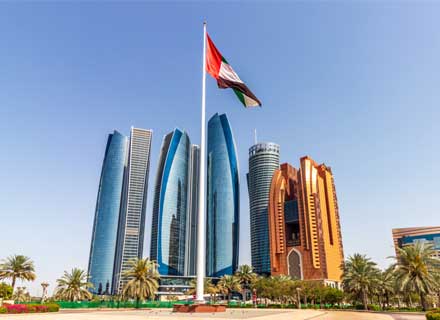According to a new index, the UAE is ranked the most attractive emerging market in the Middle East and North Africa (MENA) for investors. UAE also bagged the third spot in the world.
In Kearney’s 2023 Foreign Direct Investment (FDI) Confidence Index, the UAE has been placed third overall and first in the Middle East and North Africa.
Business leaders may learn which emerging economies are most enticing to investors thanks to Kearney’s FDI Confidence Index.
China came out on top globally, followed by India, the United Arab Emirates, Qatar, Thailand, and Saudi Arabia—the only other emerging markets that were counted in the rankings.
To increase its appeal to both investors and talent, the UAE has adopted a number of initiatives and significant regulatory reforms, including business-friendly policies.
A significant portion of the USD 66 billion in possible FDI inflows into Pakistan and the MENA region this year is anticipated to come from the UAE. The UAE received almost $22 billion in FDI inflows last year.
More than three-quarters (82%) of investors, up from 76% last year, said they plan to increase FDI over the next three years, according to a survey by Kearney.
In the next three years, FDI will be more crucial for the majority’s companies’ profitability and competitiveness (87%) than it was in 2022 (83%).
Nonetheless, investor pessimism has increased from 32% to 35%, a small increase. Despite the fact that more investors are feeling negative, the majority (63%) still have more optimism than pessimism about the world economy.
According to Kearney, investors’ confidence has been tempered by worries about potential negative outcomes.
“Investors see commodity price increases, heightened geopolitical tensions and political instability in an emerging market as the most likely risks this year. These anticipated developments are likely attributable to the ongoing Russia-Ukraine conflict and the continuing effects of the pandemic, including commodity price volatility and high inflation,” Kearney noted.

